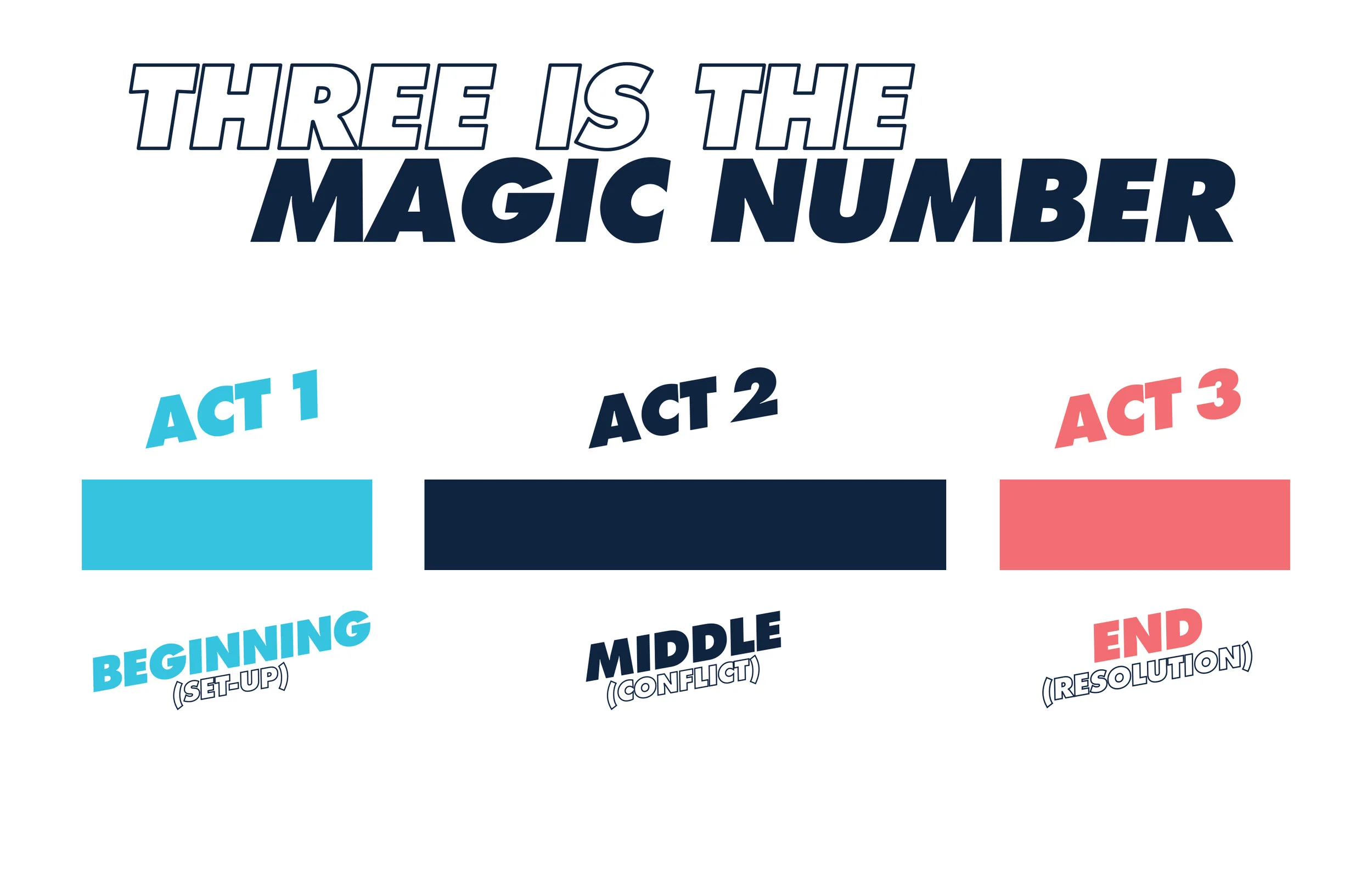The Three Act Structure
“In the first act you get your hero up a tree. The second act, you throw rocks at him. For the third act you let him down.”
Think of your favourite story. It could be a film or a book.
Now break it down in your mind and think carefully about its structure.
How does the narrative flow? Are there any recognisable ‘phases’ to the tale?
In all likelihood, it will be divided into a beginning, a middle and an end. This is because nearly all stories conform to a three-act structure which works as follows:
Act 1 is the beginning and ‘sets up’ the story. It introduces us to a character with a particular set of circumstances.
For example, in The Lord of the Rings trilogy, we meet Frodo Baggins, who has a thirst for adventure despite being a hobbit and becomes the ‘Ring Bearer’.
Act 2 forms the middle and creates the ‘conflict’ element. In this phase of the story, we witness the protagonist undergo some form of struggle.
Continuing with the J.R.R.Tolkien theme, Frodo wrestles with the power of the ring and faces many challenges on his quest to destroy it in the volcano of Mount Doom.
Act 3 forms the end or ‘resolution’. We see our ‘hero’ ultimately achieving their goal.
Frodo makes it to the volcano, the ring goes into the fire and he is finally freed from its hold over him. Yay.
Incidentally, the French word ‘denouement’ is an eloquent word for expressing the meaning of an end. Coming from the root meaning ‘unknotting’, it reminds us that an ending should be more than just an ending, but a resolution of a conflict, a satisfying solving of a problem, an unravelling of knots that have been deliberately tied.
This ‘Three Act’ approach is the same one used by some of the most successful movies of all time like Star Wars, ET, Toy Story and many others. For convenience, it can be further simplified as:
CHARACTER ---------> STRUGGLES -------------> GOAL
Or even...
LIKEABLE HERO -------> ENCOUNTERS ROADBLOCKS --------> EMERGES TRANSFORMED
The best stories adhere to this three-part structure.
Why?
It’s because it fits with our innate human desire to make sense of everything and give it structure. When creating your own story, it is important to keep this in mind. You can even sketch it out if it helps.
Just remember we like stories with a clear 'arc'.
If you want to learn how to tell better stories, check out our course on storytelling made in collaboration with some of the world’s top experts.






